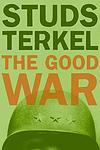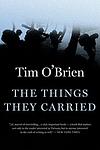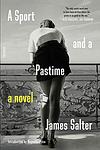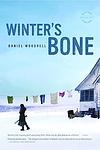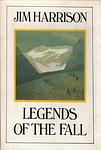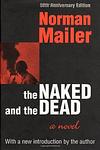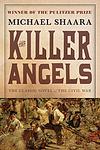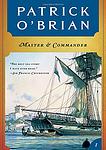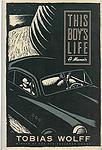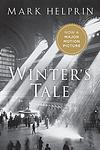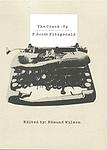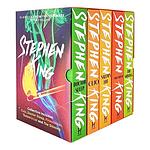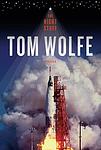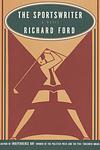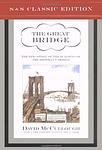The 80 Books Every Man Should Read
This is one of the 284 lists we use to generate our main The Greatest Books list.
-
What We Talk About When We Talk About Love by Raymond Carver
This collection of short stories explores the complexities of love through various perspectives. The narratives delve into the lives of everyday people, showcasing their struggles, their desires, and their failures. Love is depicted in its many forms, from passionate and romantic to destructive and obsessive, providing a raw and honest depiction of human relationships. The stories highlight how love can both heal and hurt, uniting and dividing people in unexpected ways.
-
Deliverance by James Dickey
Four friends from Atlanta embark on a canoe trip in the remote wilderness of Georgia, expecting a fun, adventurous weekend. However, their journey quickly turns into a nightmare when they are brutally attacked by a pair of backwoods locals. The friends are forced to kill their attackers in self-defense, leading to a harrowing escape down the river and through the woods, pursued by vengeful locals. The experience forever changes their lives, leaving them with deep physical and psychological scars.
-
The Grapes of Wrath by John Steinbeck
The book follows the Joad family, Oklahoma farmers displaced from their land during the Great Depression. The family, alongside thousands of other "Okies," travel to California in search of work and a better life. Throughout their journey, they face numerous hardships and injustices, yet maintain their humanity through unity and shared sacrifice. The narrative explores themes of man's inhumanity to man, the dignity of wrath, and the power of family and friendship, offering a stark and moving portrayal of the harsh realities of American migrant laborers during the 1930s.
-
Blood Meridian by Cormac McCarthy
Set in the mid-19th century, this novel follows a violent teenager known as "the Kid" as he joins a group of Indian-hunters led by the enigmatic and brutal Judge Holden. The narrative is a gruesome depiction of the lawless American West, filled with philosophical musings, vivid descriptions of the harsh landscape, and brutal, relentless violence. The story explores themes of human nature, morality, and the inherent chaos and brutality of life.
-
The Brothers Karamazov by Fyodor Dostoevsky
This classic novel explores the complex, passionate, and troubled relationship between four brothers and their father in 19th century Russia. The narrative delves into the themes of faith, doubt, morality, and redemption, as each brother grapples with personal dilemmas and family conflicts. The story culminates in a dramatic trial following a murder, which serves as a microcosm of the moral and philosophical struggles faced by each character, and by extension, humanity itself.
-
The Known World by Edward P. Jones
"The Known World" is a historical novel set in antebellum Virginia, exploring the complex relationships between slaves, free blacks, and whites. The story revolves around a black man who becomes a slave owner, his wife, and their slaves. It provides a unique perspective on the moral complexities and personal consequences of slavery, while also examining the intricate social hierarchy of the time. The narrative is filled with richly drawn characters, each with their own stories and struggles, offering a vivid portrayal of a little-known aspect of American history.
-
The Good War by Studs Terkel
This book is an oral history of World War II as told by men and women who lived through it. It includes narratives from soldiers, civilians, and politicians alike, capturing a wide range of perspectives on the war. The book illustrates the complexities of the war, its impacts on individuals and society, as well as the aftermath. It delves into the human experiences of fear, courage, loss, and survival, providing a poignant and comprehensive account of one of the most impactful events in human history.
-
American Pastoral by Philip Roth
This novel tells the story of Seymour "Swede" Levov, a successful Jewish-American businessman and former high school athlete from Newark, New Jersey. Levov's happy and conventional upper middle class life is ruined by the domestic social and political turmoil of the 1960s during the presidency of Lyndon B. Johnson, which in the novel is seen through the eyes of the narrator, Nathan Zuckerman, a budding writer who idolizes the Levovs. The novel portrays the impact of this turmoil on Levov and his family, particularly his rebellious daughter who becomes involved in revolutionary political activities.
-
A Good Man Is Hard to Find by Flannery O'Connor
This collection of short stories is set in the American South and explores themes of morality, ethics, and the complexity of human nature. The stories feature a variety of characters, each grappling with their own moral dilemmas and personal struggles. The title story centers around a family's disastrous road trip, during which they encounter a notorious escaped convict. Through these narratives, the book examines the concept of "goodness" and the capacity for redemption and grace in a flawed world.
-
The Things They Carried by Tim O'Brien
The book is a collection of linked short stories about a platoon of American soldiers fighting in the Vietnam War. The story is semi-autobiographical, based on the author's experiences in the war. The narrative explores the physical and emotional burdens the soldiers carry during the war, as well as the lingering effects of war on veterans. It delves into themes of bravery, truth, and the fluidity of fact and fiction.
-
A Sport and a Pastime by James Salter
The book is a provocative and sensual narrative about an illicit affair between a young American man and a French girl in post-war France. Set in the picturesque town of Autun, the novel explores themes of desire, love, and the blurred line between reality and fantasy. The story is narrated by an unnamed observer, who paints a vivid picture of the couple's passionate relationship, their exploration of love and sensuality, and the inevitable tragedy that follows.
-
The Call of the Wild by Jack London
This book tells the story of a domesticated dog named Buck who is stolen from his home in California and sold into service as a sled dog in Alaska. As he faces harsh conditions and brutal treatment, Buck must learn to adapt to the wild and harsh environment, ultimately reverting to his ancestral instincts in order to survive. The book explores themes of nature versus nurture, civilization versus wilderness, and the struggle for dominance.
-
Time's Arrow by Martin Amis
The novel presents the life of a Holocaust doctor in a reverse chronology, with time moving backwards. The protagonist begins his life in a peaceful retirement in America, then becomes a doctor, and finally ends up as a child in pre-war Europe. The novel explores themes of morality, guilt, and the human capacity for evil, all while challenging the reader's perception of time and causality.
-
A Sense of Where You Are by John McPhee
This book profiles the life and basketball career of Bill Bradley during his time at Princeton University. It details Bradley's discipline, intelligence, and unique skills on the court, while also delving into his personal life and his academic achievements. The narrative paints a vivid picture of a young man who excels both athletically and academically, while also giving readers a glimpse into the world of Ivy League basketball during the 1960s.
-
Hell's Angels by Hunter S. Thompson
This book provides an immersive exploration of the infamous motorcycle gang, the Hell's Angels, as seen through the eyes of a journalist who spent a year living and riding with them. The narrative delves into the lifestyle, mindset, and public perception of these notorious figures, offering a raw and unfiltered look into their world. It also examines the wider cultural context of the 1960s, including societal anxieties and the counterculture movement, and how these factors intersect with the Hell's Angels' existence.
-
Invisible Man by Ralph Ellison
The novel is a poignant exploration of a young African-American man's journey through life, where he grapples with issues of race, identity, and individuality in mid-20th-century America. The protagonist, who remains unnamed throughout the story, considers himself socially invisible due to his race. The narrative follows his experiences from the South to the North, from being a student to a worker, and his involvement in the Brotherhood, a political organization. The book is a profound critique of societal norms and racial prejudice, highlighting the protagonist's struggle to assert his identity in a world that refuses to see him.
-
Dubliners by James Joyce
"Dubliners" is a collection of 15 short stories that portray the life of the Irish middle class in the early 20th century. Each story depicts an aspect of everyday life in Dublin, capturing the complexities of human experiences and emotions. The stories range from childhood to adulthood, reflecting on themes such as the paralysis of routine, the desire for escape, and the failure of both. The book is renowned for its vivid characterization and its exploration of the subtleties of the human condition.
-
Rabbit, Run by John Updike
The novel follows the life of a 26-year-old former high school basketball star, who is dissatisfied with his current life. He impulsively leaves his wife and son and embarks on a journey in the hopes of finding a more meaningful existence. His decisions, however, lead to a series of tragic events that impact the lives of those around him. This mid-20th-century novel explores themes of freedom, responsibility, and the tragic consequences of impulsive decisions.
-
The Postman Always Rings Twice by James M. Cain
This novel is a thrilling tale of passion, murder, and betrayal. The story revolves around a drifter who becomes involved in an adulterous affair with a married woman. Together, they plot to kill her older husband for the insurance money. However, their plan spirals out of control, leading to unexpected consequences and a shocking conclusion. The narrative explores themes of lust, greed, and the destructive power of obsession.
-
Dog Soldiers by Robert Stone
In this novel, a disillusioned war correspondent, a morally compromised professor, and a woman caught between them become embroiled in a dangerous plot involving heroin smuggling from Vietnam to California. As they navigate the treacherous landscape of addiction, violence, and betrayal, the characters are forced to confront the devastating consequences of their choices. The book explores the dark underbelly of the American dream and the brutal realities of war.
-
Winter's Bone by Daniel Woodrell
Set in the harsh poverty of the Ozarks, the story follows a determined, hard-bitten teenage girl who, in the face of her drug-dealing father's disappearance, takes on the responsibility of caring for her two younger siblings and mentally ill mother. When she learns their house will be taken away unless her father shows up for his court date, she embarks on a dangerous journey through the criminal underworld to find him, encountering violence and betrayal along the way.
-
Legends of The Fall by Jim Harrison
"Legends of the Fall" is a collection of three novellas, each exploring themes of love, war, and betrayal against the backdrop of the American wilderness. The titular novella follows the lives of three brothers and their father living in the remote wilderness of Montana in the early 1900s. The three brothers, each vastly different in character, find their bond tested when they all fall in love with the same woman. Their individual and collective decisions lead to a series of tragic events that shape their destiny. The other two novellas also deal with complex relationships and moral dilemmas, set against the harsh and unforgiving landscapes of America.
-
Under the Volcano by Malcolm Lowry
Set in Mexico on the Day of the Dead in 1938, the novel follows the last day in the life of Geoffrey Firmin, a British consul with a severe alcohol addiction. Through his interactions with his estranged wife and half-brother, the book explores themes of despair, betrayal, and the destructive power of addiction, against the backdrop of political and social unrest. The impending eruption of the nearby volcano serves as a metaphor for Firmin's deteriorating mental state and the looming world war.
-
The Naked and the Dead by Norman Mailer
Set during World War II, this novel delves into the lives of a platoon of American soldiers stationed in the Pacific. The narrative explores the harsh realities of war, the complexities of human nature, and the struggle for survival in an unforgiving environment. The soldiers grapple with their fears, hopes, and the brutalities of war, revealing their innermost thoughts and experiences. The book is a gritty and realistic depiction of the psychological effects of war and the human capacity for resilience.
-
The Professional by W. C. Heinz
"The Professional" is a classic sports novel that follows the life of a middleweight boxer preparing for a championship match. The story is told through the eyes of a sportswriter, who provides a detailed, inside look at the world of professional boxing. The narrative explores themes of discipline, sacrifice, loneliness, and the relentless pursuit of a goal. The novel is acclaimed for its realistic portrayal of the harsh realities of the boxing world and the physical and psychological toll it takes on its athletes.
-
For Whom the Bell Tolls by Ernest Hemingway
Set in the backdrop of the Spanish Civil War, the novel follows the story of an American dynamiter, who is assigned the task of blowing up a bridge during a crucial attack on the city of Segovia. Alongside the war narrative, the story also explores his relationships with various characters, including his love affair with a young Spanish woman. The narrative beautifully encapsulates themes of love, war, death, and the transient nature of life.
-
Dispatches by Michael Herr
This book is a first-hand account of the Vietnam War from a war correspondent's perspective. The author vividly describes the chaos, violence, and absurdity of the war, providing a raw and unfiltered look at the experiences of soldiers on the ground. The narrative is filled with gritty details and intense imagery, capturing the fear, boredom, and disillusionment that characterized the war. The book is considered a classic of war reportage, lauded for its honest and brutal portrayal of the realities of combat.
-
Tropic of Cancer by Henry Miller
The book is a semi-autobiographical novel set in 1930s Paris and describes the protagonist's life as a struggling writer. The narrative is filled with vivid descriptions of the city, sexual encounters, and philosophical musings, all penned in a stream-of-consciousness style. The protagonist's experiences living in poverty, his relationships with other expatriates, and his pursuit of artistic freedom are central to the story. Despite the explicit content, the novel is noted for its candid exploration of the human condition and the author's quest for personal and creative authenticity.
-
Revolutionary Road by Richard Yates
This novel revolves around Frank and April Wheeler, a young couple living in a Connecticut suburb during the mid-1950s. Struggling with the banality of their lives, they plan to move to France where they believe they will be able to live more fulfilling and enlightened lives. However, their plans are derailed by a surprise pregnancy and the pressures of societal expectations, leading to a tragic end. The book explores themes of conformity, the search for self-fulfillment, and the disillusionment of the American Dream.
-
As I Lay Dying by William Faulkner
The narrative unfolds through the eyes of 15 different characters over 59 chapters. It is the story of the death of Addie Bundren and her poor, rural family's quest and motivations—noble or selfish—to honor her wish to be buried in her hometown of Jefferson, Mississippi. As the Bundren family undertakes a journey to fulfill Addie's last wish, they face many hardships and personal revelations. The novel explores themes of existentialism, death, and the nature of family relationships.
-
The Killer Angels by Michael Shaara
"The Killer Angels" is a historical novel that provides a detailed account of the Battle of Gettysburg during the American Civil War. Told from the perspectives of several key figures, including Generals Robert E. Lee and James Longstreet on the Confederate side, and Colonel Joshua Chamberlain on the Union side, the book explores the motivations, thoughts, and struggles of these men as they navigate the brutal realities of war. The narrative vividly brings to life the events, decisions, and human drama that culminated in the pivotal battle, shedding light on the personal and political complexities of this critical period in American history.
-
Slaughterhouse-Five by Kurt Vonnegut
The novel follows the life of Billy Pilgrim, a World War II veteran who has become "unstuck in time," experiencing his life events out of order. This includes his experiences as a prisoner of war in Dresden during the Allies' firebombing, his post-war life as a successful optometrist, his abduction by aliens from the planet Tralfamadore, and his eventual death. The book is a critique of war and a demonstration of the destructive nature of time, with a nonlinear narrative that reflects the chaos and unpredictability of life.
-
All the King's Men by Robert Penn Warren
"All the King's Men" is a political drama that revolves around the rise and fall of a Southern governor, loosely based on Louisiana's Huey Long. The story is narrated by a journalist who becomes the governor's right-hand man, offering an inside perspective on the political machinations, corruption, and personal tragedies that accompany the governor's climb to power. The novel explores themes of power, corruption, and the moral consequences of political ambition.
-
One Flew Over the Cuckoo's Nest by Ken Kesey
Set in a psychiatric hospital in Oregon, the novel is narrated by a half-Native American patient known as Chief Bromden, who pretends to be deaf and mute. The story follows the arrival of a new patient, a boisterous, rebellious man who challenges the oppressive and dehumanizing system of the hospital, particularly the tyrannical Nurse Ratched. The book explores themes of individuality, rebellion, and the misuse of power, ultimately leading to a tragic conclusion.
-
Sophie's Choice by William Styron
Set in post-World War II Brooklyn, this novel follows the story of a young Southern writer who becomes friends with a Jewish scientist and a beautiful Polish Catholic survivor of the Auschwitz concentration camp. The narrative unravels the tragic love triangle between the three characters, with the woman's haunting past and the horrific choice she had to make in the concentration camp serving as the heart of the story. The book delves into themes of survival, guilt, and the struggle to find meaning in the aftermath of atrocities.
-
A Fan's Notes by Frederick Exley
The novel is a semi-autobiographical account of a man who is obsessed with the New York Giants and their star player, Frank Gifford. He navigates through his life dealing with alcoholism, failed relationships, and multiple stays in mental institutions. Despite his struggles, he aspires to be a great writer. His obsession with football serves as a metaphor for his longing for success and his struggle with his failures.
-
Lucky Jim by Kingsley Amis
"Lucky Jim" is a comic novel that follows the life of Jim Dixon, a young and disillusioned lecturer at a provincial British university. Struggling with his job and his pretentious boss, Dixon navigates through a series of humorous and often absurd situations, including a disastrous public lecture and a chaotic weekend at his boss's house. The novel satirizes the snobbishness and hypocrisy of the academic world, and explores themes of class, ambition, and the struggle to find personal authenticity in a conformist society.
-
The Wind-Up Bird Chronicle by Haruki Murakami
A man's search for his wife's missing cat evolves into a surreal journey through Tokyo's underbelly, where he encounters a bizarre collection of characters with strange stories and peculiar obsessions. As he delves deeper, he finds himself entangled in a web of dreamlike scenarios, historical digressions, and metaphysical investigations. His reality becomes increasingly intertwined with the dream world as he grapples with themes of fate, identity, and the dark side of the human psyche.
-
Master and Commander by Patrick O'Brian
Set during the Napoleonic Wars, the novel follows the story of Jack Aubrey, a brash and ambitious lieutenant in the Royal Navy who becomes the captain of the sloop Sophie. Alongside his friend Stephen Maturin, a ship's surgeon, naturalist, and intelligence agent, Aubrey navigates the complex world of naval warfare and politics. The narrative showcases their adventures and challenges on the high seas, including intense ship battles, storms, and the complexities of life on board a warship.
-
Plainsong by Kent Haruf
This novel is set in the small town of Holt, Colorado, and explores the intertwining lives of its residents. The narrative focuses on a high school teacher raising two sons after his wife leaves him, a pair of bachelor brothers who have lived together on their family farm for decades, and a pregnant teenager kicked out of her home. The characters' lives intersect in unexpected ways, offering a poignant exploration of community, resilience, and the human capacity for connection and kindness.
-
A Confederacy of Dunces by John Kennedy Toole
The novel is a comedic satire set in New Orleans in the early 1960s, centered around Ignatius J. Reilly, a lazy, eccentric, highly educated, and socially inept man who still lives with his mother. Ignatius spends his time writing a lengthy philosophical work while working various jobs and avoiding the responsibilities of adulthood. The story follows his misadventures and interactions with a colorful cast of characters in the city, including his long-suffering mother, a flamboyant nightclub owner, a beleaguered factory worker, and a frustrated hot dog vendor.
-
Affliction by Russell Banks
"Affliction" is a powerful and haunting novel about a man named Wade Whitehouse, a small-town cop in New Hampshire, who descends into a spiral of violence and despair triggered by the fear of his own impotence. The narrative delves deep into Wade's past and present life, his struggles with alcoholism, his failed marriage and difficult relationship with his daughter, and his abusive father, all leading to a tragic and shocking climax. The book is a profound exploration of the struggle for self and identity in a harsh and unforgiving environment.
-
This Boy's Life by Tobias Wolff
This memoir explores the author's challenging childhood as he moves across the country with his divorced mother, fleeing an abusive relationship and seeking a better life. The young boy struggles with his identity, often resorting to lies and deceit to create a more favorable image of himself. As he navigates adolescence in a small town in the 1950s, he contends with a violent stepfather, school troubles, and his own rebellious nature. Despite the adversity, he maintains a sense of hope and resilience, offering a compelling portrait of a young man coming of age in post-war America.
-
Winter's Tale by Mark Helprin
Set in a mythical New York City, this novel follows the life of Peter Lake, a master mechanic and thief, who falls in love with a terminally ill girl, Beverly Penn, after breaking into her house. Peter's life is intertwined with the city's golden age and its criminal underworld, as well as the world of the supernatural. The story is a blend of fantasy, love, and adventure, exploring themes of justice, beauty, and the constant struggle between good and evil.
-
The Adventures of Augie March by Saul Bellow
"The Adventures of Augie March" is a novel set in Chicago during the Great Depression. The story follows the life of Augie March, a poor but spirited boy growing up in a broken home, as he navigates his way through life. The narrative explores his various jobs, relationships, and adventures, as he constantly seeks his identity and place in the world. His journey is marked by a series of encounters with different people and experiences, each shaping him in unique ways.
-
Women by Charles Bukowski
"Women" is a semi-autobiographical novel that explores the chaotic love life of an aging writer. The protagonist, a hard-drinking and crude poet, navigates through a series of relationships with a variety of women, each with their own eccentricities and troubles. The narrative delves into the gritty, often sordid details of these relationships, depicting the protagonist's struggle with his own demons and the complexities of his romantic entanglements. Despite the seemingly bleak tone, the novel is punctuated with moments of raw humor and profound insight into human nature.
-
Going Native by Stephen Wright
"Going Native" is a darkly surreal journey through the underbelly of late 20th-century American life. The protagonist, a seemingly ordinary suburban man, abandons his life to embark on a disturbing cross-country odyssey. The narrative unfolds through a series of interconnected vignettes, each exploring a different aspect of American society from the perspective of various eccentric and often dangerous characters. The novel is a disturbing exploration of identity, alienation, and the dark side of the American dream.
-
Heart of Darkness by Joseph Conrad
This classic novel follows the journey of a seaman who travels up the Congo River into the African interior to meet a mysterious ivory trader. Throughout his journey, he encounters the harsh realities of imperialism, the brutal treatment of native Africans, and the depths of human cruelty and madness. The protagonist's journey into the 'heart of darkness' serves as both a physical exploration of the African continent and a metaphorical exploration into the depths of human nature.
-
The Spy Who Came in From the Cold by John le Carré
This novel is a fascinating tale of espionage during the Cold War, centered around a British intelligence officer who is seemingly ready to end his spy career. However, he is given one last mission before his retirement: to bring down the head of East German Intelligence. As he navigates the dangerous world of spies and double agents, he is forced to confront his own past and the sacrifices he has made for his country. The story is a complex exploration of morality, loyalty, and the personal cost of political conflict.
-
The Crack-Up by F. Scott Fitzgerald
"The Crack-Up" is a collection of essays and letters penned during a critical period of the author's life, reflecting his state of mind during his personal and career crisis in the 1930s. The book includes the author's personal reflections, his observations on contemporary American society, and his views on literature. It provides an intimate look into his struggle with alcoholism, his failing marriage, and his own sense of self-worth, offering a stark contrast to his earlier, more optimistic works.
-
CivilWarLand in Bad Decline by George Saunders
This book is a collection of short stories and a novella, all set in dystopian versions of America. The narratives often feature theme parks, which serve as metaphors for the cultural and moral decay of society. The characters are often trapped in low-wage jobs and are struggling to make ends meet, while also grappling with various personal issues. The stories are infused with dark humor and satire, and they provide a critique of capitalism and consumer culture.
-
War and Peace by Leo Tolstoy
Set in the backdrop of the Napoleonic era, the novel presents a panorama of Russian society and its descent into the chaos of war. It follows the interconnected lives of five aristocratic families, their struggles, romances, and personal journeys through the tumultuous period of history. The narrative explores themes of love, war, and the meaning of life, as it weaves together historical events with the personal stories of its characters.
-
The Shining by Stephen King
A recovering alcoholic accepts a job as a winter caretaker at a remote Colorado hotel, hoping the isolation will help him reconnect with his wife and young son, and work on his writing. However, the hotel has a dark history and a powerful malevolent presence that influences him into violence, while his psychic son sees horrific forebodings from both past and future. As the winter weather leaves them snowbound, the father's sanity deteriorates, leading to a terrifying climax.
-
Winesburg, Ohio by Sherwood Anderson
"Winesburg, Ohio" is a collection of interconnected short stories that paints a picture of life in a small town in the early 20th century. The book captures the hopes, dreams, and despair of the inhabitants of Winesburg, focusing on a young reporter as he interacts with the townspeople. Each character's story reveals their inner struggles, loneliness, and search for understanding and connection, providing a profound exploration of human nature and the complexities of life in a small community.
-
Moby Dick by Herman Melville
The novel is a detailed narrative of a vengeful sea captain's obsessive quest to hunt down a giant white sperm whale that bit off his leg. The captain's relentless pursuit, despite the warnings and concerns of his crew, leads them on a dangerous journey across the seas. The story is a complex exploration of good and evil, obsession, and the nature of reality, filled with rich descriptions of whaling and the sea.
-
Midnight's Children by Salman Rushdie
The novel tells the story of Saleem Sinai, who was born at the exact moment when India gained its independence. As a result, he shares a mystical connection with other children born at the same time, all of whom possess unique, magical abilities. As Saleem grows up, his life mirrors the political and cultural changes happening in his country, from the partition of India and Pakistan, to the Bangladesh War of Independence. The story is a blend of historical fiction and magical realism, exploring themes of identity, fate, and the power of storytelling.
-
Labyrinths by Jorge Luis Borges
"Labyrinths" is a collection of short stories and essays that explore complex themes of infinity, parallel universes, and the blurred lines between reality and illusion. The narratives often feature protagonists who are scholars or librarians, trapped in surreal, metaphysical landscapes. The author's unique writing style combines elements of magical realism, philosophy, and detective fiction, creating an intricate web of narratives that challenge the reader's perception of reality and fiction.
-
The Right Stuff by Tom Wolfe
"The Right Stuff" is a non-fiction novel that explores the lives and experiences of the first Project Mercury astronauts selected for the NASA space program in the 1960s. The book delves into the personal and professional lives of these astronauts, highlighting their courage, competitiveness, and the immense pressure they faced. It also provides a detailed account of the space race between the United States and the Soviet Union during the Cold War era.
-
The Sportswriter by Richard Ford
This novel explores the life of a suburban New Jersey man who makes his living as a sportswriter. After experiencing the death of his son and subsequent divorce, he attempts to maintain a positive outlook on life and keep his personal despair at bay. The book delves into his relationships, encounters, and introspections during a transformative Easter weekend, providing a deep analysis of his character and his struggle to find meaning and purpose in the face of tragedy.
-
American Tabloid by James Ellroy
"American Tabloid" is a gritty crime novel that delves into the underbelly of American society during the late 1950s and early 1960s. The narrative follows three rogue law enforcement officers involved in various illicit activities, including drug trafficking, union corruption, and political conspiracies. The story intertwines with real historical events leading up to the JFK assassination, suggesting a sinister link between organized crime, the CIA, and the highest levels of government.
-
The Autobiography of Malcolm X by Alex Haley
This book is an autobiography narrating the life of a renowned African-American activist. It delves into his transformation from a young man involved in criminal activities to becoming one of the most influential voices in the fight against racial inequality in America. The book provides a deep insight into his philosophies, his time in prison, conversion to Islam, his role in the Nation of Islam, his pilgrimage to Mecca, and his eventual split from the Nation. It also addresses his assassination, making it a powerful account of resilience, redemption, and personal growth.
-
What It Takes by Richard Ben Cramer
This book provides an in-depth look at the 1988 United States presidential election, focusing on the personal and political lives of the candidates. It delves into the grueling process of running for president, exploring the intense scrutiny, relentless schedule, and the physical and emotional toll it takes on the candidates and their families. The book also explores the complexities of American politics, the role of media, and the power dynamics within the political landscape.
-
The Continental Op by Dashiell Hammett
"The Continental Op" is a collection of detective stories centered around an unnamed operative working for the Continental Detective Agency. The operative, known as the Continental Op, is a hardened professional who solves cases using his wits, experience, and an occasional willingness to bend the rules. The stories, set in various locations around the United States, weave together elements of mystery, crime, and noir, highlighting the gritty underbelly of society during the Prohibition era.
-
The Power and the Glory by Graham Greene
The novel is set during the Mexican Revolution, focusing on a whisky priest who is on the run from the authorities who have outlawed Catholicism. The priest, who is flawed and sinful, travels across the country to evade capture, minister to the faithful, and find a way to repent for his sins. Despite his moral failings, the priest's compassion and commitment to his faith make him a symbol of hope and resilience in the face of oppression. The book explores themes of faith, redemption, and the human struggle with sin.
-
So Long, See You Tomorrow by William Maxwell
The novel revolves around a young boy in Illinois who befriends a new classmate, Cletus, whose father has been murdered. The protagonist becomes obsessed with the murder, imagining the events leading up to the tragedy from the perspectives of the involved parties. The novel explores themes of memory, guilt, and the impact of trauma on childhood friendships.
-
Native Son by Richard Wright
This novel tells the story of Bigger Thomas, a young African-American man living in Chicago's South Side during the 1930s. Bigger's life takes a tragic turn when he accidentally kills a young white woman. The incident leads to his arrest and trial, revealing the deep-seated racial prejudices and injustices prevalent in American society at the time. The narrative explores themes of poverty, systemic racism, fear, and the effects of oppression.
-
Let Us Now Praise Famous Men by James Agee
This book is an in-depth examination of the lives of three tenant families in the South during the Great Depression. The author combines detailed descriptions, journalistic reporting, and poetic prose to capture the harsh realities of poverty, racial discrimination, and the struggle for survival. The book also includes evocative photographs that further illustrate the living conditions and daily lives of the families. The work is a profound exploration of the human condition, offering a raw and unflinching look at the effects of economic and social injustice.
-
Angle of Repose by Wallace Stegner
This novel follows the story of a retired historian, wheelchair-bound due to a degenerative disease, as he explores the lives of his pioneering grandparents in the late 19th and early 20th century American West. Through letters, he pieces together their struggles, triumphs, and the impact of their relationship on their surroundings. The historian parallels his own life and failed marriage with that of his grandparents, leading to a deep exploration of the concepts of stability, perseverance, and the "angle of repose."
-
Great Bridge by David McCullough
This book is a detailed account of the construction of the Brooklyn Bridge, one of the most significant and iconic landmarks in New York City. It provides an in-depth look at the political, architectural, and personal challenges faced during its 14-year construction period in the late 19th century. The narrative also explores the lives of the Roebling family, who were the chief engineers and designers of the bridge, along with the societal changes and technological advancements of the era.
-
The Dharma Bums by Jack Kerouac
The novel follows the adventures of two young men as they journey across the United States. They are both on a quest for spiritual truth and enlightenment, embracing the lifestyle and philosophy of Buddhism. Their journey takes them from monasteries to mountain tops, from the bustling city life to the tranquil solitude of the wilderness. The novel is a celebration of freedom, nature and the search for inner peace, presenting a contrast between materialistic conventional life and the simplicity of the nomadic, spiritual life.
-
Lonesome Dove by Larry McMurtry
The book tells the story of two retired Texas Rangers who embark on a perilous cattle drive from Texas to Montana in the 1870s. The narrative focuses on the duo's adventures and the characters they meet along the way, including a variety of outlaws, Indians, and settlers. This epic tale of the Old West explores themes of friendship, unrequited love, and the harsh realities of frontier life.
-
Lolita by Vladimir Nabokov
The novel tells the story of Humbert Humbert, a man with a disturbing obsession for young girls, or "nymphets" as he calls them. His obsession leads him to engage in a manipulative and destructive relationship with his 12-year-old stepdaughter, Lolita. The narrative is a controversial exploration of manipulation, obsession, and unreliable narration, as Humbert attempts to justify his actions and feelings throughout the story.
-
Underworld by Don DeLillo
"Underworld" is a sweeping narrative that spans from the 1950s to the end of the 20th century, exploring the interconnectedness of events and the impact of the Cold War on American society. The story revolves around a diverse group of characters, including a waste management executive, a graffiti artist, a nun, and a baseball collector, among others. These characters' lives intertwine in unexpected ways, illustrating the complex web of relationships and influences that shape our world. The novel is renowned for its vivid portrayal of historical events and its profound examination of themes such as memory, technology, and waste.
-
The Adventures of Huckleberry Finn by Mark Twain
The novel follows the journey of a young boy named Huckleberry Finn and a runaway slave named Jim as they travel down the Mississippi River on a raft. Set in the American South before the Civil War, the story explores themes of friendship, freedom, and the hypocrisy of society. Through various adventures and encounters with a host of colorful characters, Huck grapples with his personal values, often clashing with the societal norms of the time.
-
The Road by Cormac McCarthy
In a post-apocalyptic world, a father and his young son journey through a desolate landscape, struggling to survive. They face numerous threats including starvation, extreme weather, and dangerous encounters with other survivors. The father, who is terminally ill, is driven by his love and concern for his son, and is determined to protect him at all costs. The story is a haunting exploration of the depths of human resilience, the power of love, and the instinct to survive against all odds.
-
Let the Great World Spin: A Novel by Colum McCann
Set in 1970s New York City, the novel weaves together the stories of a diverse group of characters, ranging from a young Irish monk living among prostitutes in the Bronx to a group of wealthy Park Avenue ladies planning a charity event. Their lives intersect in unexpected ways against the backdrop of a tightrope walker's daring feat between the Twin Towers. The narrative explores themes of love, loss, and the interconnectedness of humanity.
-
Billy Lynn's Long Halftime Walk: A Novel by Ben Fountain
The novel follows Billy Lynn, a 19-year-old soldier, who, along with his fellow soldiers in Bravo Squad, becomes a hero after a harrowing Iraq battle and is brought home temporarily for a victory tour. During the tour, they're honored at a Dallas Cowboys game, which exposes the commercialization and shallow appreciation of their sacrifices. Amidst the celebration, Billy grapples with his understanding of heroism, patriotism, family, and the stark contrast between the realities of war and America's perceptions.
-
The Orphan Master's Son: A Novel by Adam Johnson
This novel follows the life of Pak Jun Do, a man who rises from humble beginnings as an orphan in North Korea to a high-ranking official in Kim Jong-Il's government. The narrative provides a glimpse into the harsh realities of living under a totalitarian regime, as Jun Do navigates a world of propaganda, forced labor, and political prison camps. His journey takes a turn when he becomes involved in a diplomatic mission, falls in love with a famous actress, and is forced to assume the identity of a rival commander. This leads him into a dangerous game of deception and survival, providing a chilling and engrossing exploration of identity, love, and the human spirit in the face of extreme adversity.
-
Savages: A Novel by Don Winslow
In "Savages: A Novel", two successful marijuana growers, Ben and Chon, live a comfortable life in Laguna Beach, California, sharing their girlfriend, O. Their lives take a drastic turn when a Mexican drug cartel kidnaps O, demanding a ransom and a share of their business. This forces the duo to employ every means possible, including violence, to save O and protect their livelihood. The novel explores themes of love, friendship, greed, and survival, painting a vivid picture of the underground drug trade.
-
The Stories of John Cheever by John Cheever
This collection of short stories provides an intimate look into the lives of individuals living in the American suburbs during the mid-20th century. The narratives often center around themes of love, loss, and the pursuit of the American dream, painting a vivid picture of the human condition. The characters are typically middle-class individuals dealing with personal crises, existential dread, and the often harsh realities of everyday life. The stories are renowned for their ability to capture the essence of post-war America, with all of its beauty, despair, and complexity.
Esquire, 80 Books
An unranked, incomplete, utterly biased list of the greatest works of literature ever published.
Added about 10 years ago.
This list has a weight of 26%. To learn more about what this means please visit the Rankings page.
Here is a list of what is decreasing the importance of this list:
- Voters: no voter information
- List: seems biased towards newer, more modern books but not specified
- Voters: restricted to a distinct criteria(race, gender, etc)
- List: criteria is not just "best/favorite"
If you think this is incorrect please e-mail us at [email protected].






